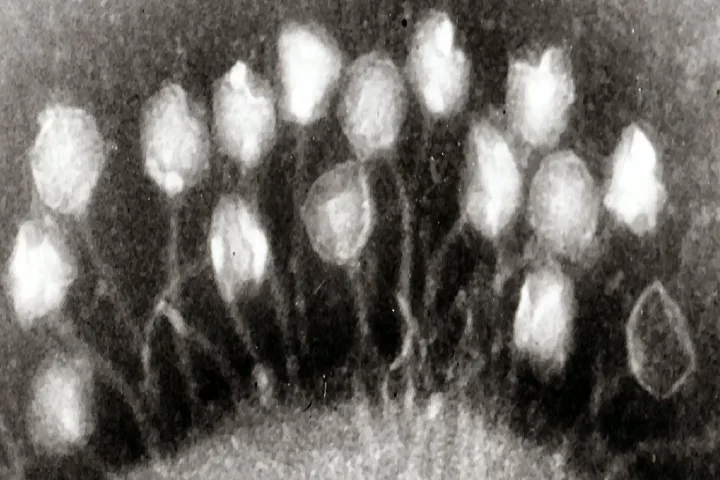

Bacteriophages or bacteria that are vital to the methane cycle were discovered in most samples found in Tibet (Pic. Courtesy wikimedia commons)
Hollywood horror films have exploited the theme of deadly ancient animals or dangerous micro organisms coming alive to wreak havoc on humankind. Going beyond the celluloid in real life too vanished megafauna like the woolly rhino and a giant wolf dating back to 40,000 years in the past have been discovered as per report in sciencealert.com as have bacteria which are over 750,000 years old.
These ancient life forms provide insight about the ecosystems of the past including the environments in which they thrived yet it has evoked concerns about the bygone viruses coming back to life and the repercussions it would have.
Explaining the study which was done last year and published in Microbiome, its first author Zhi-Ping Zhong, a microbiologist from Ohio State University, said: “Melting will not only lead to the loss of those ancient, archived microbes and viruses, but also release them to the environments in the future.”
Using metagenomics techniques and latest methods of keeping ice core samples disinfected, the scientists were able to comprehend what lay in the cold.
The research yielded for the scientists dozens of viruses that were 15,000 years old and unique. These were found from the Tibetan Plateau’s Guliya ice cap. Elaborating on this Zhong remarked: “These glaciers were formed gradually, and along with dust and gases, many, many viruses were also deposited in that ice.” The organisms found in them typify what was present then in the atmosphere.
The communities of microbes are vital as it corresponds to the changes in the concentrations of ion and dust in the atmosphere, and also point at the condition of environment and climate then while showing how viruses evolved over time.
Of the 33 identified viruses found 22,000 feet above the sea level, 28 had never been seen or heard before. Speaking about them, Ohio State University’s microbiologist Matthew Sullivan observed: “These are viruses that would have thrived in extreme environments”, with “signatures of genes that help them infect cells in cold environments – just surreal genetic signatures for how a virus is able to survive in extreme conditions.”
The scientists by juxtaposing the genetic sequences of these viruses with those studied before found that the samples most were bacteriophages that affect Methylobacterium or bacteria that are vital to the methane cycle. The team thus concluded: “These frozen viruses likely originate from soil or plants and facilitate nutrient acquisition for their hosts.”
With Covid-19 virus having brought the world to its knees, ancient viruses are a source of worry for scientists.
More study is required about bacteria and viruses to know how they would react to change in climate and how they would come to terms when moving from ice age to today’s warm period.
India decisively asserted its military superiority over Pakistan during this month's brief but intense conflict,…
Trade associations and local business groups in Pakistan-occupied Gilgit-Baltistan (PoGB) launched an indefinite protest on…
A human chain and protest march was organized by various organizations in front of the…
The United States on Saturday announced the expansion of its security partnerships with India through…
Highlighting the use of indigenous platforms during Operation Sindoor, Chief of Defence Staff (CDS) General…
Congress MP Shashi Tharoor on Friday (local time) said that Colombia will issue a statement…